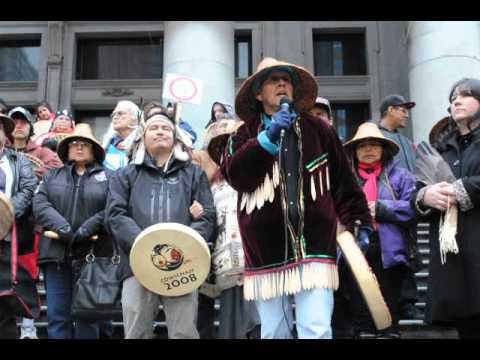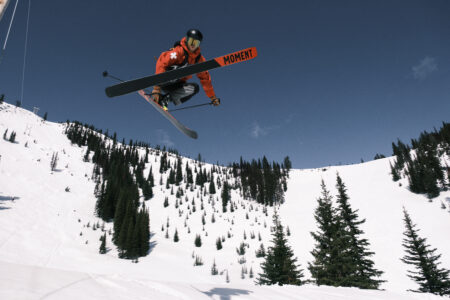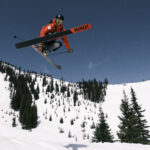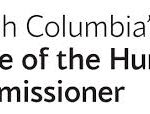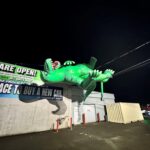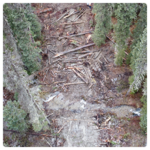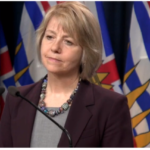Op/Ed: An Indigenous Elder responds to column
The ongoing conflict over open-net fin-fish aquaculture in our coastal waters has not received much local press. After all, it’s a coastal issue; we no longer have salmon runs in our neighbourhood, thanks to a series of dams on the Columbia River. But I notice that we eat salmon from the coast anyway, brought to us by the wonders of modern transportation. I thank Ferraro Foods for now carrying only wild salmon.
For those who have been living under a rock or have some other reason to be unaware of this, a number of the First Nations, or Indigenous Nations, in whose territories the open-net salmon farms are located never agreed to have them, don’t want them there, are protesting their presence and the impacts on wild fish populations, and are seeking to have the provincial government get them removed.
Black Press columnist Tom Fletcher, who was identified in a 2010 Georgia Strait item as one of the “ten most right-wing columnists, reporters and broadcasters” in BC, has recently published a column slagging those Indigenous Nations and all others who support them in objecting to the salmon farms. Fletcher characterized the protests as “organized by Sea Shepherd” and described registered biologist Alexandra Morton, who first raised alarms about the effects of fish farms spreading disease to wild fish populations, merely as a “shock photographer.” Morton has published 17 peer-reviewed research papers in such publications as the North American Journal of Fisheries Management, Science, the ICES Journal of Marine Science, and the Canadian Journal of Fisheries and Aquatic Sciences. Fletcher also slammed campaigns against farmed salmon as “US-funded.
One man involved in the campaign against open-net-pen farmed salmon and the protests against open-net fin-fish farming without consent of Indigenous Nations in their unceded territories has written an eloquent response, and since many in this area have been exposed to Fletcher’s column, it is fitting that an independent local publication here should provide a forum for that response.
The letter below is by Eddie Gardner, who is a Stó:lō elder of the Skwah First Nation in Chilliwack. He is also an elder-in-residence with University of the Fraser Valley, and a passionate defender of wild salmon.
Eddie Gardner writes:
“Tom Fletcher sounds so irritated by salmon farm protesters that it makes one wonder if he owns shares in the open net fish farm industry. Or maybe he just wants everybody to settle down and accept that a trashed marine environment is the cost of prosperity. That is a premise that many British Columbians are not willing to accept. Mr. Fletcher’s assertion that the news media “aren’t biting” on this story must mean that he hasn’t watched W5 lately.
“Protesters, aka wild salmon defenders, are not hired, and certainly not paid. And while we wouldn’t want to bore Tom and others with our “familiar placards,” these do cost money, so we print new ones only as our revenues allow. Our revenues, for the record, are generated locally from a supportive public.
“To clarify further, Sea Shepherd did not organize the occupation of the fish farms. Among the legions of individuals, networks and organizations actively supporting this Indigenous led occupation are Bishop Logan McMenamie of the Anglican Diocese of British Columbia, the David Suzuki Foundation, the Union of BC Indian Chiefs, the First Nations Wild Salmon Alliance, Clayoquot Action, the Wild Salmon Caravan, the Watershed Watch Salmon Society, the Council of Canadians, the Green Party of BC, MP Fin Donnelly, marine biologist Dr. Alexandra Morton, and of course, the Sea Shepherd Society, among so many others.
“The Indigenous women and men occupying the fish farms are doing so because they are sick and tired of being ignored and having their legitimate concerns brushed aside for some 31 years. In case anyone is wondering, camping out on those farms is neither comfortable nor fun. The presence of Sea Shepherd’s Martin Sheen research vessel helped provide publicity and attracted the attention of CTV, which produced the documentary “W5 investigates the battle over farmed Atlantic salmon on the B.C. coast.” Tom would do well to get out the popcorn and watch this documentary. He would learn that open net fish farms amplify ocean sea lice population to harmful levels, are seen to hold illegal by-catch of endangered herring, and many of the Atlantic salmon in the cages have open sores, missing skin, large tumors and many are deformed. These are all symptoms of diseases that can be transferred to wild salmon.
“Tom mentions that Norway is launching a new regulatory regime – but leaves it at that. Why is Norway in need of a new regulatory regime? Could it be because the old one is not working due to out-of-control sea lice and disease problems? Tom doesn’t say. Perhaps he doesn’t care. What he is concerned about is feeding the hungry masses of humans that are predicted to inhabit the Earth by 2050. The fish farm companies are fond of that argument, like they’re charitably providing bountiful farmed salmon for the teeming, hungry masses. The reality, though, is that they are not feeding the hungry masses now, never mind in 2050 – they are selling their fish to people who can afford it and already have plenty of protein options.
“Regarding the escaped Atlantic salmon from a Washington State fish farm, it is true they haven’t “colonized” the BC coast, but is also true some have found their way up our rivers. They are fish and they swim and they know to swim up rivers to spawn. It is not unreasonable to think that they could become an invasive species given the chance. Of course, this doesn’t happen overnight ― this isn’t War of the Worlds ― but it is a legitimate concern. Previous deliberate and misguided attempts to introduce Atlantic salmon on our coast were indeed unsuccessful, but these experiments were not sustained. Why risk it? Another grave concern is the presence of dangerous contagious diseases that may migrate from Atlantic salmon to wild species, further compromising both the integrity of marine ecosystems and the lucrative wild salmon economy. This is a major international issue.
“Regarding the “Aboriginal participation in these protests,” Tom seems to think that the coastal Indigenous people couldn’t muster the wherewithal to mount a coherent protest about anything were it not for some nebulous “foreign direction.” Tom would have you believe they wouldn’t be upset about the cumulative degradation of their marine environment and great harm to their traditional foods, including endangered herring, wild salmon and clams by Marine Harvest’s fish farms unless some “foreigners” told them to be. Absent foreign guidance, they would presumably just paddle around in the shallows and look for pretty rocks.
“The Wild Salmon Defenders Alliance is preparing a Fish Farm Occupation Benefit Concert in Chilliwack, on November 24 at the Skwah Band Hall. Other individuals and groups across British Columbia are also generating financial contributions to support the human and legal rights of the occupiers to cleanse their unceded territory of open net pen fish farms. As scientist David Suzuki stated, “Wild Pacific salmon deserve to be free from the stressors affecting their ability to survive. UNDRIP is more than words on paper, and reconciling First Nations’ rights and title on the Swanson Island fish farms and other affected areas couldn’t be more pressing. “The current occupation is an opportunity to move BC’s fish farm industry in a direction that supports rights, wild salmon, environmental sustainability and economic security.”
“We continue to encourage both levels of government to collaborate on the “nation-to-nation” relationship with the Musgamagw, Namgis and Mamalilikala Nations who are united in their legitimate and peaceful stand to have fish farms removed from their territories. Note, this is separate from Indigenous Nations who have agreements with the fish farm industry in other territories. We encourage Tom Fletcher to properly educate himself and refrain from creating fake news.”
* * * * *
For readers interested in the issue of wild salmon populations and the impacts of open-net farming of Atlantic salmon in coastal waters, the one-hour-and-nine-minute documentary film “Salmon Confidential” is available on-line at: http://www.salmonconfidential.ca/watch-salmon-confidential-documentary/


